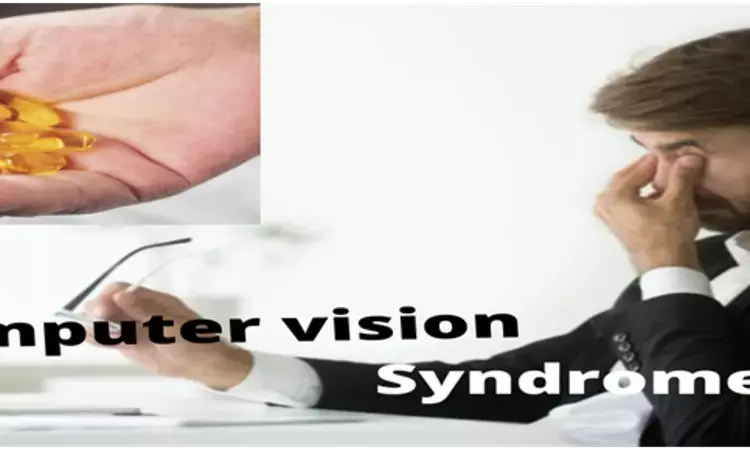- Home
- Medical news & Guidelines
- Anesthesiology
- Cardiology and CTVS
- Critical Care
- Dentistry
- Dermatology
- Diabetes and Endocrinology
- ENT
- Gastroenterology
- Medicine
- Nephrology
- Neurology
- Obstretics-Gynaecology
- Oncology
- Ophthalmology
- Orthopaedics
- Pediatrics-Neonatology
- Psychiatry
- Pulmonology
- Radiology
- Surgery
- Urology
- Laboratory Medicine
- Diet
- Nursing
- Paramedical
- Physiotherapy
- Health news
- Fact Check
- Bone Health Fact Check
- Brain Health Fact Check
- Cancer Related Fact Check
- Child Care Fact Check
- Dental and oral health fact check
- Diabetes and metabolic health fact check
- Diet and Nutrition Fact Check
- Eye and ENT Care Fact Check
- Fitness fact check
- Gut health fact check
- Heart health fact check
- Kidney health fact check
- Medical education fact check
- Men's health fact check
- Respiratory fact check
- Skin and hair care fact check
- Vaccine and Immunization fact check
- Women's health fact check
- AYUSH
- State News
- Andaman and Nicobar Islands
- Andhra Pradesh
- Arunachal Pradesh
- Assam
- Bihar
- Chandigarh
- Chattisgarh
- Dadra and Nagar Haveli
- Daman and Diu
- Delhi
- Goa
- Gujarat
- Haryana
- Himachal Pradesh
- Jammu & Kashmir
- Jharkhand
- Karnataka
- Kerala
- Ladakh
- Lakshadweep
- Madhya Pradesh
- Maharashtra
- Manipur
- Meghalaya
- Mizoram
- Nagaland
- Odisha
- Puducherry
- Punjab
- Rajasthan
- Sikkim
- Tamil Nadu
- Telangana
- Tripura
- Uttar Pradesh
- Uttrakhand
- West Bengal
- Medical Education
- Industry
Do omega-3 fatty acid supplements reduce CVS-related dry eye symptoms? Study finds

Australia: A systematic review and meta-analysis showed low certainty evidence of use of oral omega-3 fatty acid supplements for a reduction in computer vision syndrome (CVS)-related dry eye symptoms compared to placebo. The study article was published in Ophthalmology.
CVS is the leading occupational hazard of the 21st century affecting nearly about 70 percent of all computer users. The eye muscles are unable to recover from the constant tension required to focus on a computer for a protracted, uninterrupted, and prolonged time leading to CVS. It often exacerbates dry eye symptoms, such as eye strain and blurred vision, as well as other symptoms, such as headache. This set of issues related to CVS has inspired many prospective treatments, including widely marketed products like blue-light-blocking lenses and oral supplements.
Sumeer Singh, the University of Melbourne, Australia, and his team conducted a review to identify, appraise and synthesize clinical evidence related to the efficacy and safety of interventions for treating CVS, and thereby provide support to practitioners in providing evidence-based advice to their patients.
The study assessed evidence of CVS therapies from randomized controlled trials (RCTs) identified in Ovid MEDLINE, EMBASE, CENTRAL, and trial registries. The review included 45 RCTs representing about 4,500 patients.
Key findings of the study,
• 10 trials of optical aids such as multifocal contact lenses and blue-light-blocking glasses showed no effect on visual fatigue symptoms with low certainty of the evidence.
• Low certainty evidence was found for no difference between the use of oral berry extract and polyunsaturated fatty acid supplements.
• Based on two studies with high heterogeneity, there was low certainty evidence for a decrease in dry eye symptoms with omega-3 supplements compared to placebo.
• Oral carotenoid supplementation improved critical flicker-fusion frequency (CFF) relative to placebo, although the clinical significance of this finding is unclear.
• Fewer studies with comparable, quantitative outcomes were available for interventions, such as ergonomic adjustment and measures like the "20-20-20 rule" for taking breaks from screens.
Researchers conclude that only oral omega-3 supplements present evidence as a potentially effective treatment for CVS. Moreover, the possible benefit, the mechanism of therapeutic action and the frequency of adverse gastrointestinal effects of these supplements need to be studied before recommending them as therapy for CVS in the general population. There was insufficient evidence to establish efficacy or safety with certainty for other interventions.
The authors wrote that though CVS treatments are increasingly studied, the current quality of evidence is inadequate and recommend future studies after addressing the shortcomings in the design and reporting of RCTs investigating CVS treatments.
Reference:
Sumeer Singh, Myra B. McGuinness, Andrew J. Anderson, Laura E. Downie, Interventions for the management of computer vision syndrome: a systematic review and meta-analysis, Ophthalmology, 2022, https://doi.org/10.1016/j.ophtha.2022.05.009.
BDS
Dr. Hiral patel (BDS) has completed BDS from Gujarat University, Baroda. She has worked in private dental steup for 8years and is currently a consulting general dentist in mumbai. She has recently completed her advanced PG diploma in clinical research and pharmacovigilance. She is passionate about writing and loves to read, analyses and write informative medical content for readers. She can be contacted at editorial@medicaldialogues.in.
Dr Kamal Kant Kohli-MBBS, DTCD- a chest specialist with more than 30 years of practice and a flair for writing clinical articles, Dr Kamal Kant Kohli joined Medical Dialogues as a Chief Editor of Medical News. Besides writing articles, as an editor, he proofreads and verifies all the medical content published on Medical Dialogues including those coming from journals, studies,medical conferences,guidelines etc. Email: drkohli@medicaldialogues.in. Contact no. 011-43720751


